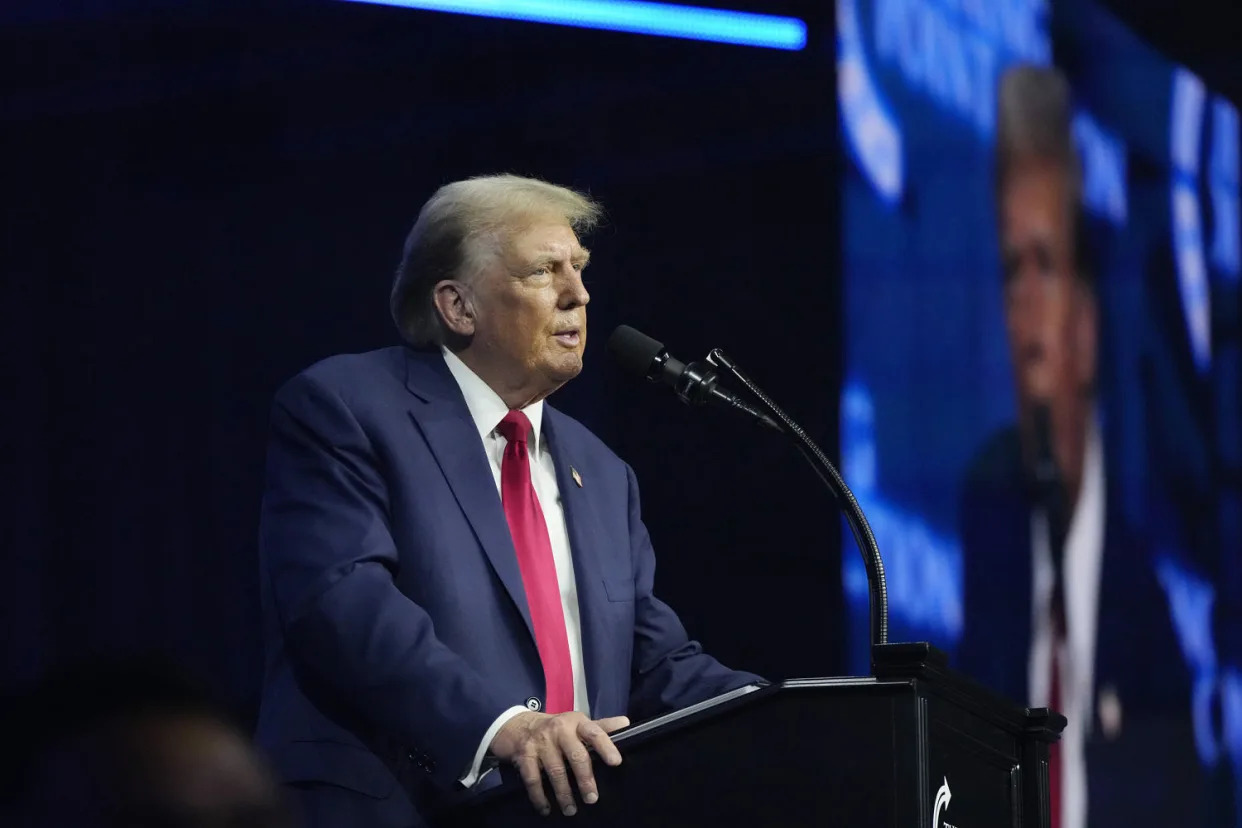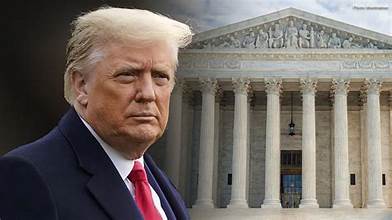Supreme Court set to rule Monday on Trump presidential immunity claims in federal election interference case

WASHINGTON — The Supreme Court is set to rule Monday on whether former President Donald Trump has sweeping presidential immunity that would shield him from prosecution for trying to overturn the 2020 election.
The justices have left the high-profile case for their final decision day before summer break. It was the last one argued this term.

There are three other cases set to come up on Monday, two dealing with Republican-backed state laws seeking to regulate social media platforms and the other on when companies can challenge federal agency rule-making.
On Friday, the court ruled in a separate case related to Jan. 6 criminal prosecutions, but the narrow decision is unlikely to have much impact on the former president’s criminal case.
Trump was charged by special counsel Jack Smith in August 2023 with taking part in three criminal conspiracies: “to defraud the United States by using dishonesty, fraud and deceit” to obstruct the electoral vote process; “impede the January 6 congressional proceeding at which the collected results of the presidential election are counted and certified”; and working “against the right to vote and to have that vote counted.”
Trump has pleaded not guilty to all the charges. He contends the prosecution is political and being orchestrated by his opponents to impede his bid to return to power.
Trump sought to have the case dismissed, asserting that because he was president at the time of the actions involved in the indictment, he is protected by “absolute immunity.” He argued that his actions fall within official acts that cannot be subject to prosecution.
The special counsel’s office has countered that those official acts are subject to scrutiny by the criminal justice system.
During oral arguments, the court hinted it could send the case back to a lower court to hold evidentiary hearings over whether his actions fall under official acts. Such a decision would undoubtedly delay the case from getting in front of a jury before the November election.
In a separate case, Trump was convicted by a New York jury in May on business document falsification charges related to hush money payments to a porn star in the final days of the 2016 election. He is scheduled to be sentenced on July 11.
Trump still faces charges in two other cases that are pending, including a case brought by Smith in connection with classified documents that were taken from his possession after he left office. Georgia prosecutor Fani Willis also has charged him in connection with the effort to overturn the 2020 election, but that case has been bogged down by accusations about her having a relationship with a prosecutor she hired to work with her office. Trump pleaded not guilty in those cases as well.
This article was originally published on NBCNews.com


